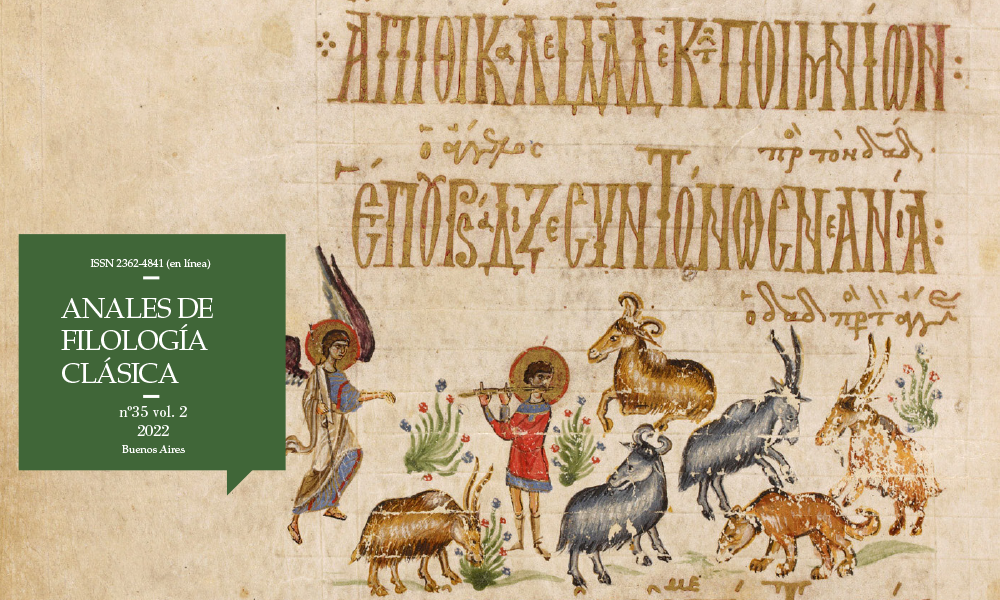Origin and Purpose of Romulus’ boiled turnips
Abstract
Since the publication in 1864 of Franz Bücheler's commentary on Seneca's Apocolocyntosis, the representation of Romulus devouring boiled turnips in heaven has been the subject of debate and controversy among specialists. After 157 years of exegesis, it is generally accepted that Seneca, with this depiction, is quoting from a supposed fragment of Lucilius’ Saturae where the prolific satirist (and, consequently, Seneca) is mocking whether Romulus or Ennius and the seriousness of his Annales. In the present contribution, I will argue against this view. To begin with, I will argue that the attribution to Lucilius of the sentence [Romulus in caelo] ferventia rapa vorare is untenable. Next, that the author of this quotation is in fact Seneca. Thirdly, that the representation of Romulus devouring turnips in heaven is, in spite of its mocking crudeness, a symbol of traditional values and, finally, that Seneca uses it in a favorable way as a means of opposing it to the negative example of Claudius. To demonstrate this claim, I will discuss the origin and evolution of this representation of Romulus on the basis of Malavolta (2017), and the links of Seneca's Menippean satire with Cicero's thought.Downloads
Download data is not yet available.
Published
2023-07-31
How to Cite
Ferriol, E. (2023). Origin and Purpose of Romulus’ boiled turnips. Anales De Filología Clásica, 2(35). https://doi.org/10.34096/afc.i35.13221
Issue
Section
Artículos
Copyright (c) 2023 Ezequiel Ferriol

This work is licensed under a Creative Commons Attribution-ShareAlike 4.0 International License.
Los autores/as que publiquen en esta revista aceptan las siguientes condiciones:
- Los autores/as conservan los derechos de autor y ceden a la revista el derecho de la primera publicación, con el trabajo registrado con la licencia de Atribución-CompartirIgual 4.0 Internacional (CC-BY-SA 4.0) de Creative Commons, que permite el uso comercial de la obra y de las posibles obras derivadas, la distribución de las cuales se debe hacer con una licencia igual a la que regula la obra original.
- Los autores/as pueden realizar otros acuerdos contractuales independientes y adicionales para la distribución no exclusiva de la versión del artículo publicado en esta revista (p. ej., incluirlo en un repositorio institucional o publicarlo en un libro) siempre que indiquen claramente que el trabajo se publicó por primera vez en esta revista.
- Se permite y recomienda a los autores/as a publicar su trabajo en Internet (por ejemplo en páginas institucionales o personales) antes y durante el proceso de revisión y publicación, ya que puede conducir a intercambios productivos y a una mayor y más rápida difusión del trabajo publicado (vea The Effect of Open Access).
En ningún momento se cobrará monto alguno al autor por la publicación en esta revista.







